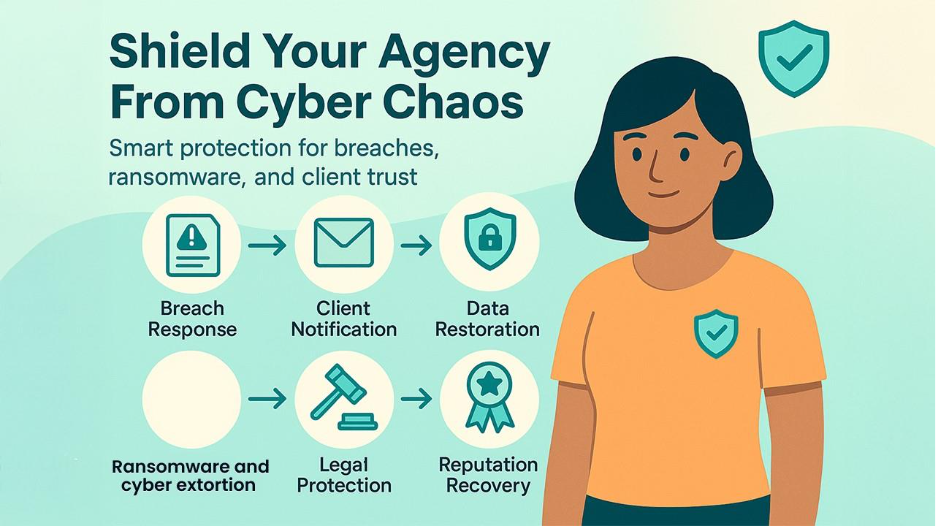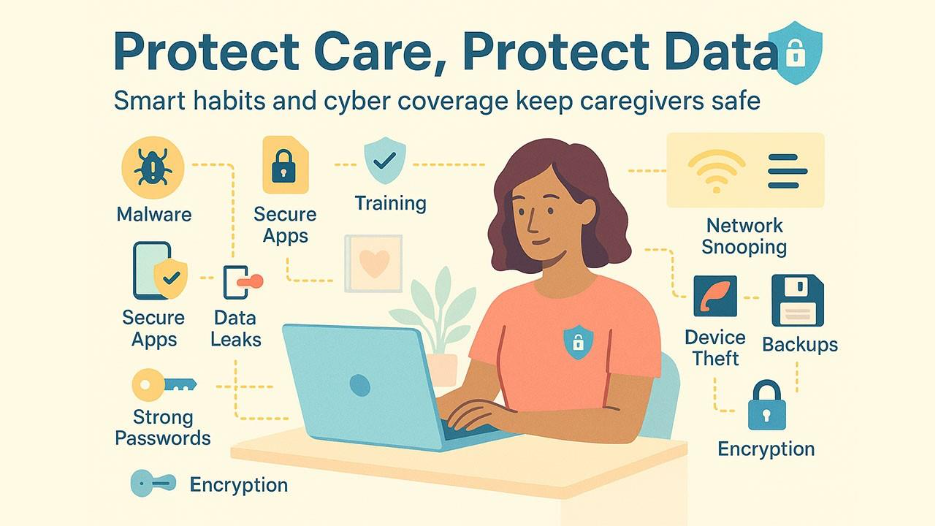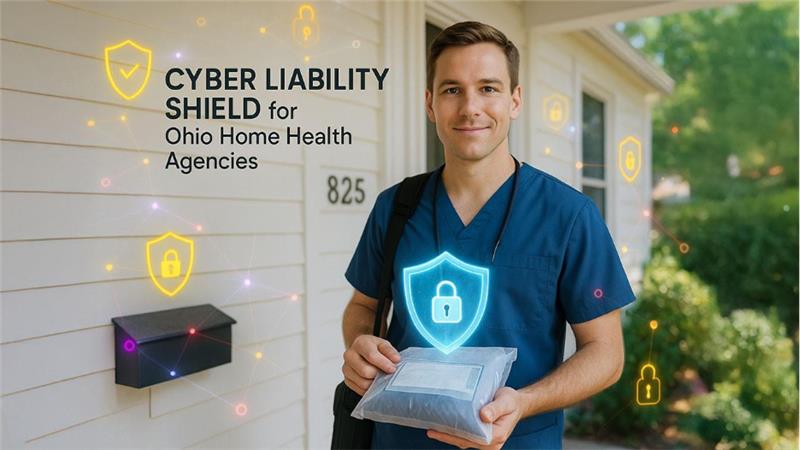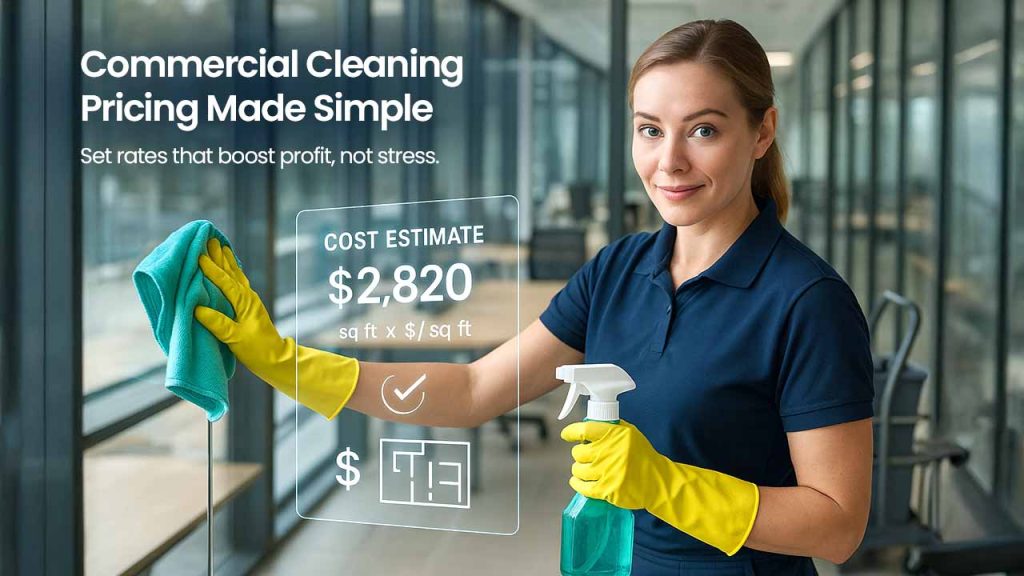Cybersecurity is no longer something home health agencies can ignore, and if you operate in Ohio, you already know how complicated this space can get. Many agencies reach out asking
Cybersecurity is no longer something home health agencies can ignore, and if you operate in Ohio, you already know how complicated this space can get. Many agencies reach out asking how liability coverage for home agencies in Ohio actually helps when client records, medical updates, and payment information live on phones, tablets, and cloud apps that caregivers use daily.
Let’s break it down together in a simple, conversational way so you fully understand how to protect both your business and your clients.
Why Cyber Liability Matters in Ohio’s Home Health Landscape
Home health care is deeply personal. Caregivers enter clients’ homes, document sensitive medical notes, process billing, and communicate with families. Almost all of this happens digitally. That means even a minor breach could expose:
- Medication lists
- Medical histories
- Social Security numbers
- Insurance details
- Private addresses
- Caregiver communications
When this information falls into the wrong hands, agencies face legal risks, financial losses, and damage to their trust. Cyber liability insurance steps in exactly for these moments.
Ohio’s Home Care Agencies Face Unique Cyber Risks
Ohio tightly regulates patient privacy and home health agencies need to be compliant while at the same time they continue mobile caregiving. Nurses and other caregivers in the field frequently utilize their own devices, unprotected WiFi at the homes they visit or a third party app to share an update and hence create backdoors for hackers. Understanding emerging cybersecurity threats is essential for maintaining both compliance and client trust.
What exactly are these risks?
- Lost or stolen phones carrying patient data
- Hacked email accounts
- Ransomware attacks against agency systems
- Fraudulent messages requesting patient documents
- Data sent over unsecured networks
- Accidental data sharing by employees
None of these situations requires a major failure. If someone cannot find their device, a simple wrong click or a glance in the wrong direction can cause very serious trouble.
How Cyber Liability Insurance Protects Home Health Agencies

When people hear “cyber insurance,” they often think it’s only for large companies. But for home health agencies, it’s one of the most essential layers of protection you can invest in. Cyber liability coverage typically includes:
1) Breach response support
A professional team helps identify what happened, secure systems, and guide you through legal requirements.
2) Client notification costs
Ohio requires agencies to notify any affected client after a breach. Insurance covers the mailing, communication, and legal steps.
3) Data restoration
If your records are locked or deleted, coverage pays for experts to restore them.
4) Ransomware and cyber extortion
This segment comes to the rescue when the attacker asks for money in exchange for the decryption key.
5) Legal fees and settlements
If clients claim negligence, insurance helps cover the cost of attorneys and potential damages.
6) Reputational recovery
Some policies even cover PR support to rebuild client confidence.
Ohio’s Cyber Rules Affect Home Health Agencies More Than You Think
Ohio’s data breach laws require:
- Quick breach reporting
- Notice to impacted individuals
- Clear documentation of what happened
- Proof of efforts to secure data
You can review the official state guidelines here! This situation puts small home care agencies with a few clients on the same level in terms of data security as big care organizations. In general, home health agencies that collect sensitive medical data are subject to both state data privacy laws as well as HIPAA regulations. Cyber liability is your ally in maintaining compliance with both.
Digital Risks Increase When Care Happens at Home

Home environments aren’t controlled workplaces. Caregivers might connect to public WiFi between visits or store patient schedules on their phones. This increases exposure to:
- Network snooping
- Device theft
- Malware from unsecured downloads
- Accidental data leaks
Even the most careful caregiver can make mistakes. Cyber liability provides a safety net when real life gets messy.
Simple Steps Ohio Agencies Can Take Today
Having insurance is very important but, at the same time, prevention should not be put aside. Here are some points at which an agency in Ohio can start right away:
- Train caregivers on safe digital practices
- Use strong passwords and two-factor authentication
- Require secure apps approved by the agency
- Encrypt all devices that store patient details
- Avoid sending medical info through text messages
- Regularly back up sensitive files
- Set clear policies for remote work and device use
Small habits can make a significant difference in reducing risks.
Conclusion
Operating a home health agency in Ohio means you are not only responsible for the clients' wellness, but you are also the custodian of their most confidential information. With cyber threats increasing every year, relying on luck is no longer an option.
When you invest in liability cover for home agencies in Ohio, you’re protecting your agency’s reputation, your clients’ privacy, and your financial stability. Cyber liability isn’t about expecting a breach. It’s about being prepared for the moment one happens.
Related Posts:
What to Look for in a Healthcare Software Development Vendor
Remote Work and Health Policies: Where Online Doctor’s Notes Fit In
Respond to this article with emojis






